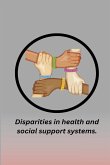HOW TO FINANCE AND DELIVER HEALTH CARE Health has been one of the most frequent issues arising in the Social Policy debate for the last 60 or more years. The answers given vary according to political ideology, economic expediency, and the moral standing of individuals and society. The sources of funding are essentially two: either the individual directly, or a larger group acting on his behalf. In the second case, we have two main categories. The individual is either covered by private for-profit insurance, or by a public insurance scheme financed by mandatory employment contributions and/or by taxes on income and/or wealth. The economic implications of each form of health insurance are immense-for individuals, employers, the government, and for the economy as a whole. The main differentiation is the position of health care in the value system of society. If health care is considered a right, its financing must be similar to that of other public goods or rights such as justice, national security, personal safety, basic education, etc. At the same time, the provision of all public goods is a public responsibility and government is judged by how well it measures up to this responsibility. If, on the other hand, health care is considered a good, bought and sold on the market, then it is up to individuals to provide for themselves. Obviously, this fundamental issue belongs to the sphere of politics and is up to society to judge, according to its code of ethics. The time to decide has come in America, somewhat belatedly, but in a way more acute than ever. The health of individuals, but also and mainly the economic health of the nation, depends on the decision. REVIEWS "Extend the discussion of medical profession into other non-physician professionals' role in addressing the healthcare issue, such as NPs & PAs." - Reviewer's Comment No. 1, Bentham Science, September 2016 "This seems a timely book. It is an important discussion in the western world as to how best finance the health care system. I expect there will be a wide audience for this book. I am attracted to the idea that there is not only a critique, but also attempts to point to the ways out. Because of my own expertise I am interested in the analysis between economy and morality that the book promises." - Reviewer's Comment No. 1, Bentham Science, September 2016








